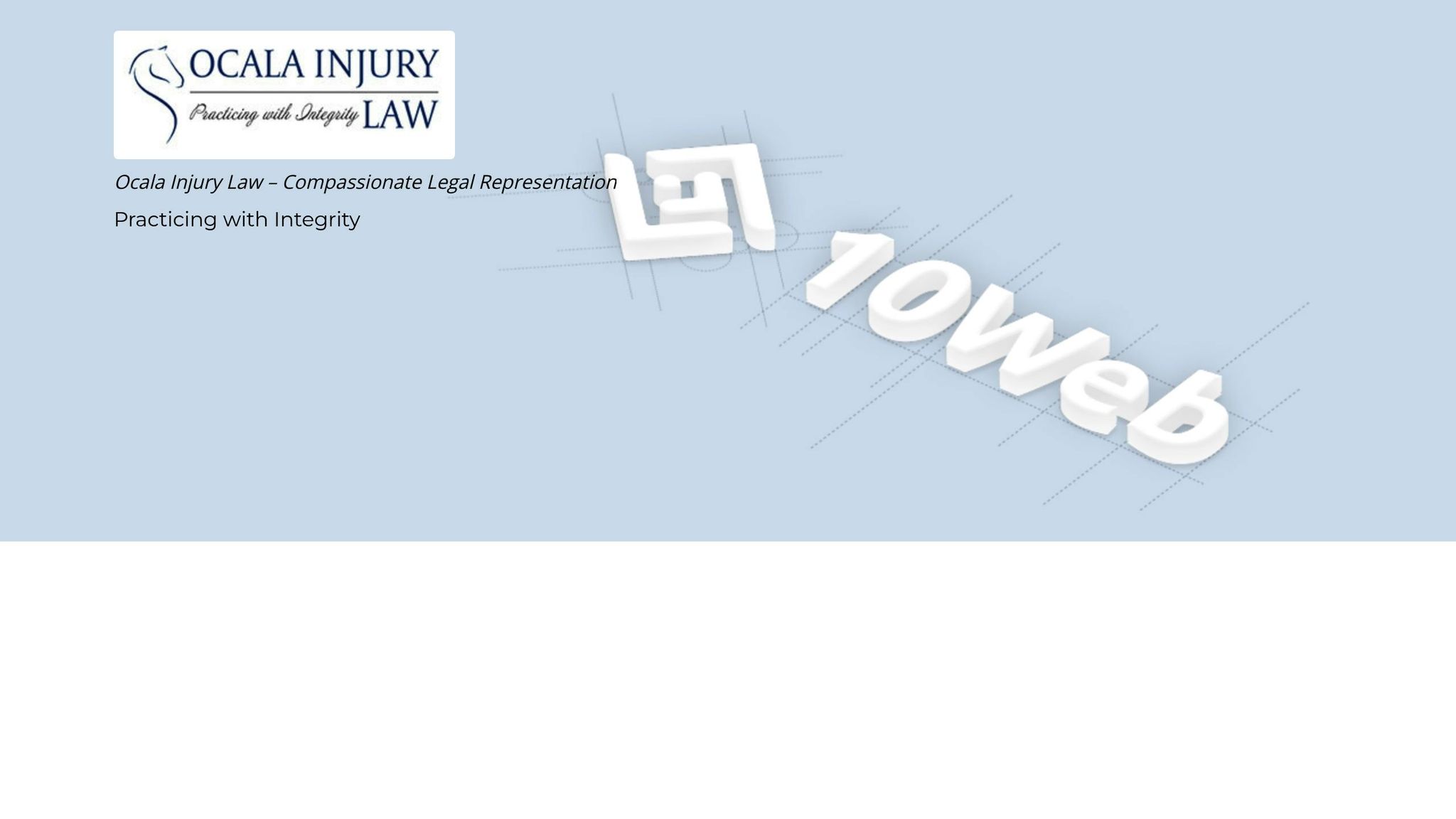Filing a claim against a government entity? Time is critical. Government claims come with stricter deadlines, mandatory steps, and unique rules compared to standard legal claims. Missing these deadlines can mean losing your right to compensation.
Key Takeaways:
- Shorter Deadlines: Government claims often must be filed within months, not years.
- Extra Steps: You need to file an administrative claim notice before suing.
- Special Exceptions: Deadlines may extend for minors, military members, or delayed injury discovery.
- Strict Compliance: Each government agency has specific procedures you must follow.
Act quickly, gather evidence, and consult an attorney to protect your rights. This guide explains the process and how to navigate it successfully.
Government vs Standard Claims: Main Differences
Claims against government entities are not the same as standard personal injury cases. It’s essential to understand these distinctions to safeguard your rights. Here’s what sets them apart:
Tighter Filing Deadlines
When dealing with government claims, deadlines are much stricter compared to standard cases, which often allow years to file. Acting quickly and consulting a lawyer early can make all the difference in keeping your case alive.
Additional Legal Steps
Filing a claim against a government entity comes with extra procedural hurdles. These include:
- Administrative Claim Notice: You must submit a formal notice outlining your claim before you can file a lawsuit.
- Detailed Documentation: Government claims often require specific forms and thorough evidence from the start.
- Waiting Period: There’s usually a mandatory waiting time for the government to respond before you can move forward with a lawsuit.
- Agency-Specific Rules: Each government agency has its own set of procedures and deadlines that must be followed.
Consequences of Missing Deadlines
Failing to meet the deadlines for a government claim can result in your case being dismissed, leaving you without compensation. Time is critical – consult a lawyer right away to avoid this outcome and ensure proper filing.
How to File a Government Claim
Filing a government claim involves following specific procedures to protect your right to compensation.
Preparing Your Claim Notice
The first step is submitting a formal claim notice. This notice should include:
- Your personal information: name, address, and contact details
- Details of the incident: date, time, and location
- Description of injuries or damages
- Summary of financial losses: medical expenses, lost wages, etc.
- The government agency involved
- Supporting evidence: photos, witness statements, and relevant documents
Use a delivery method that provides proof of submission, like certified mail, and keep copies of everything for your records. Timelines for submitting your notice vary by location, so check your jurisdiction’s requirements.
State vs. Federal Deadlines
Deadlines for filing claims differ depending on whether your claim is at the state or federal level. Federal claims have strict timelines for submitting notices and filing lawsuits after a response. State and local claims, on the other hand, follow their own schedules. Missing these deadlines could result in losing your right to pursue the claim, so confirm the rules for your area.
Additional Procedures for Government Claims
Government claims often involve extra steps. Once your notice is submitted, the government typically conducts an administrative review. This process may include:
- Requests for additional documentation
- Evidence evaluation
- Settlement offers or denial notices
Maintain detailed records of all interactions and documents. Double-check all procedural requirements before moving forward with a lawsuit to avoid having your claim dismissed.
Time Limit Extensions and Special Cases
When Deadlines Can Change
In some situations, the usual deadlines for filing government claims can be adjusted. These scenarios might allow for extended filing periods.
Discovery of Injury or Damage: If harm or damage becomes apparent later, the deadline may start from the date you discover it – not the date of the incident. For instance, if exposure to hazardous materials at a government site leads to health issues that are diagnosed months later, the clock might begin when doctors identify the connection.
Minor Age Status: For individuals under 18, the filing period doesn’t begin until they reach adulthood. This ensures that minors have the opportunity to make legal decisions once they are of age.
Government Misconduct: If a government agency intentionally withholds information or misleads you about your rights, courts may allow extra time to file. This ensures that agencies cannot benefit from deceptive practices.
Pausing the Time Limit Clock
In addition to extensions, certain situations can temporarily stop the countdown on a filing deadline:
Active Military Service: The Servicemembers Civil Relief Act (SCRA) protects active-duty military members by pausing the deadline during their service and usually extending it for a reasonable period after their discharge.
Mental Incapacity: If someone is mentally incapacitated, courts may stop the clock until they recover or a guardian is appointed. This safeguard ensures fair access to legal options for those unable to act on their own.
Ongoing Administrative Review: When a government agency is actively reviewing your claim, some jurisdictions may put the deadline on hold until the review is finished. Check local policies to confirm if this applies to your case, as rules can vary.
Bankruptcy Proceedings: If the government entity involved files for bankruptcy, an automatic stay may temporarily freeze claims. The deadline typically resumes once the stay is lifted.
To use these extensions or pauses, you’ll need solid documentation and possibly legal action. Since courts often interpret these exceptions narrowly, it’s essential to act quickly and keep thorough records of any circumstances that could justify a deadline adjustment.
sbb-itb-68ed374
Getting Legal Help
Navigating government claims can be overwhelming due to strict deadlines and detailed requirements. Having legal support can make all the difference.
Why Legal Help Matters
Government claims come with intricate rules and tight timelines. An experienced attorney can guide you through the process by:
Managing Deadlines: Attorneys keep track of every deadline, ensuring your claim stays on track.
Preparing Documentation: Legal professionals help you gather and submit detailed claim notices, including:
- Incident descriptions
- Medical records
- Damage evaluations
- Supporting evidence
Ensuring Compliance: They make sure your claim is filed with the correct agency, follows the proper format, and adheres to any administrative appeal processes.
Evaluating Your Claim: Attorneys calculate the value of your claim by considering:
- Current and future costs
- Lost income
- Pain and suffering
This expertise simplifies the process and helps protect your rights.
Ocala Injury Law Services

When dealing with government claims, having specialized legal support is essential. Ocala Injury Law offers services designed to meet these challenges, including:
Free Consultations: In a no-cost initial meeting, an attorney will review your case, explain the steps involved, and estimate your claim’s value.
Custom Legal Strategies: The firm creates a plan tailored to your specific situation, factoring in the agency involved, the nature of your injuries, deadlines, and available evidence.
Help With Documentation: The team assists in organizing and preparing:
- Government forms and notices
- Witness statements
- Expert opinions
- Additional supporting materials
Meeting the unique requirements of government claims is critical for success. Ocala Injury Law works closely with clients to build strong cases while ensuring every procedural detail is handled correctly.
Key Points to Remember
Filing a government injury claim comes with strict deadlines, and missing them can jeopardize your chance to seek compensation. Here’s what you need to know:
- Shorter Deadlines Apply: Government claims often have tighter timelines compared to other types of legal claims.
- Agency-Specific Rules: Each government agency has its own filing requirements and deadlines. Make sure to check the specific guidelines for your case.
- Act Quickly: Even a small delay can result in losing your right to file.
Pay close attention to these deadlines to protect your legal rights.
FAQs
What happens if I miss the deadline to file a claim against a government entity?
Missing the deadline to file a claim against a government entity can have serious consequences. In most cases, failing to meet the statute of limitations means you lose your right to seek compensation for your injuries or damages. Government claims often have much shorter deadlines than standard personal injury cases, sometimes as short as six months, so it’s critical to act quickly.
If you’re unsure about the deadline for your case, consulting an experienced attorney can help you navigate the process and ensure you don’t miss important filing requirements. Legal professionals, like those at Ocala Injury Law, provide personalized guidance and representation to help protect your rights.
What are the steps and deadlines for filing a personal injury claim against a government agency?
Filing a personal injury claim against a government agency involves specific procedures and strict deadlines that differ from standard claims. Generally, you must file a notice of claim with the agency before pursuing legal action. This notice typically includes details about the incident, your injuries, and the compensation you’re seeking.
Deadlines for filing these claims vary by jurisdiction and agency but are often much shorter than in non-government cases – sometimes as little as six months from the date of the incident. It’s crucial to act quickly and follow the required steps to avoid losing your right to compensation.
If you’re unsure about the process or deadlines for your case, consulting an experienced personal injury attorney can help ensure your claim is handled correctly and on time. For personalized guidance, consider reaching out to a firm like Ocala Injury Law, which specializes in navigating complex government claims and offers free consultations to discuss your case.
Can I still file a claim if I discover my injury or damage after the deadline has passed?
In some cases, exceptions or extensions to the standard filing deadline may apply if you discover your injury or damage after the deadline. This is often referred to as the ‘discovery rule’, which allows the statute of limitations to begin when the injury or damage is reasonably discovered, rather than when it occurred. However, these exceptions are limited when filing claims against government entities and may depend on specific laws in your state.
To understand if an exception applies to your situation, it’s crucial to consult with an experienced personal injury attorney. At Ocala Injury Law, we offer personalized guidance to help you navigate these complex legal timelines and ensure your rights are protected.




